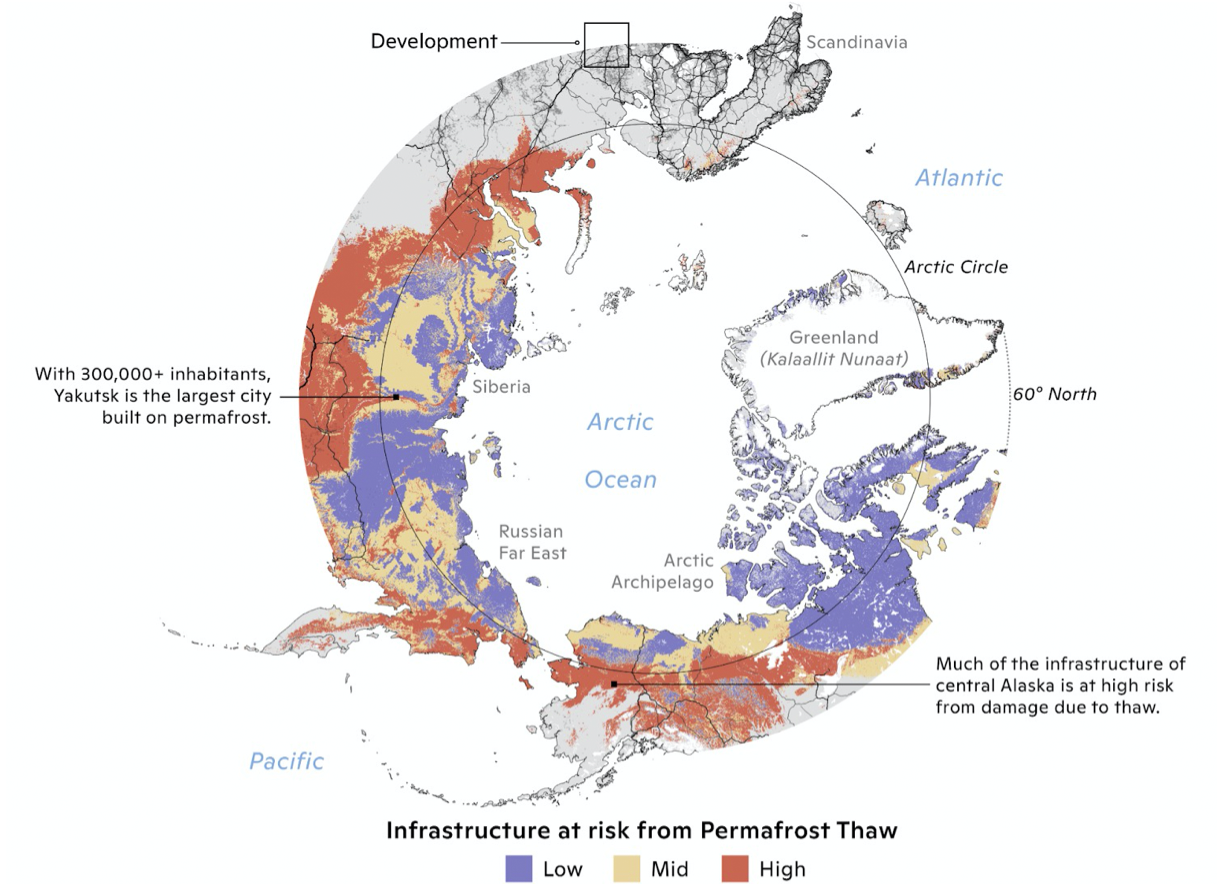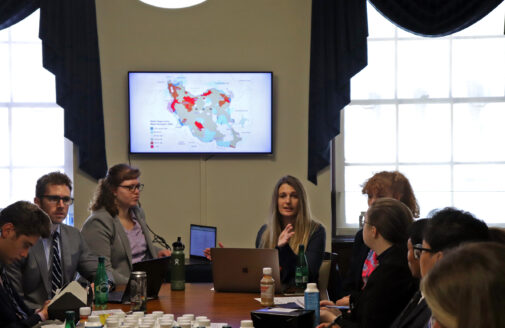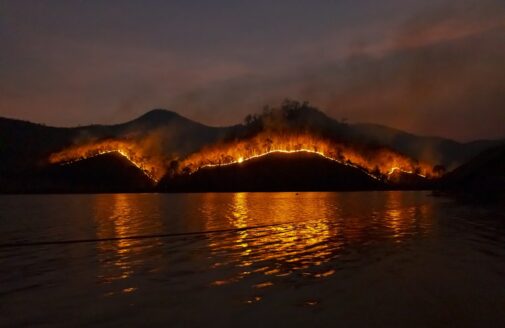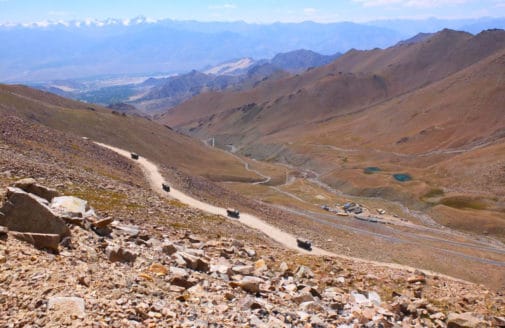photo by Heather Goldstone
- Dave McGlinchey Chief of Government Relations
- Christopher R. Schwalm Risk Program Director, Senior Scientist
- Monica Caparas Research Associate
- Andrew Condia External Affairs Manager
- Carlos Dobler-Morales Research Scientist
- Dominick Dusseau Research Associate
- Abby Fennelly Policy Analyst
- Alexandra Naegele Research Scientist
Climate change intersects with global security in multiple ways, including threatening infrastructure and exacerbating existing societal stressors and regional instabilities.
While climate change has been identified by policymakers as a critical national security issue, granular climate impacts are rarely included in security strategy. In 2020, Woodwell Climate’s Government Relations and Risk teams began to address this gap through a series of case studies that combined cutting edge climate risk assessments and security analysis.
Our Work and Impact
We quantify and map key climate risks that have the potential to aggravate existing instabilities and tensions in the future. Our team has also provided analysis of climate risk to military installations for Defense Department decision makers.
Our case studies focused on the China-India border region (storymap), the Arctic (storymap), and North Korea (storymap). Our team also produced storymaps (no case study) related to water security issues in Iran and Türkiye.
That work has developed into a broader climate security expertise and our experts continue to provide this analysis to senior policymakers in the U.S. Congress and at federal agencies.
If you would like to connect with us about this work, please contact External Affairs Manager Andrew Condia at acondia@woodwellclimate.org.
Research area







